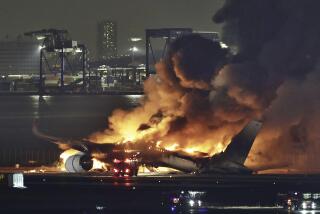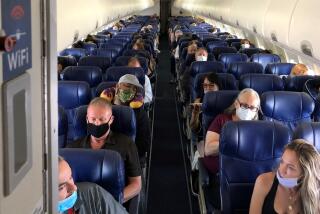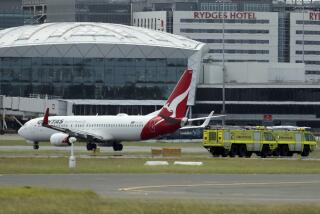Good, but Tragically Late
- Share via
It took about nine minutes for the tragedy of ValuJet Flight 592 to unfold last May. But it’s what didn’t happen during that brief time that has prompted a tragically tardy but welcome step by the airline industry.
According to cockpit voice recordings, Flight 592 was about seven minutes out from Miami International Airport when an inferno from the cargo bay reached the cabin. Two minutes later, the jet crashed into swamplands just 20 miles from the airport, killing all 110 aboard.
Test simulations showed that a fire from the ignition of improperly packed and oxygen canisters in the aircraft’s cargo area would have taken about six minutes to reach blast-furnace intensity. The fire could have started as the plane was leaving the runway. Small things that might have given the pilots a better chance--cargo bay smoke detectors--were not installed on the jet. Most long-range airliners have smoke detectors and flame suppressors, but detectors had not been required on the types of older craft that several start-up airlines have relied on to keep costs low.
Thursday, executives of 15 major airlines joined President Clinton and Vice President Al Gore to announce that detectors will be installed in the cargo holds of all jetliners in their fleets that do not already have them. Great, but a question remains. The importance of smoke detectors in saving lives at home and at work has long been recognized. Why wasn’t the same common-sense knowledge applied to all jetliners years ago?
More to Read
Sign up for Essential California
The most important California stories and recommendations in your inbox every morning.
You may occasionally receive promotional content from the Los Angeles Times.













